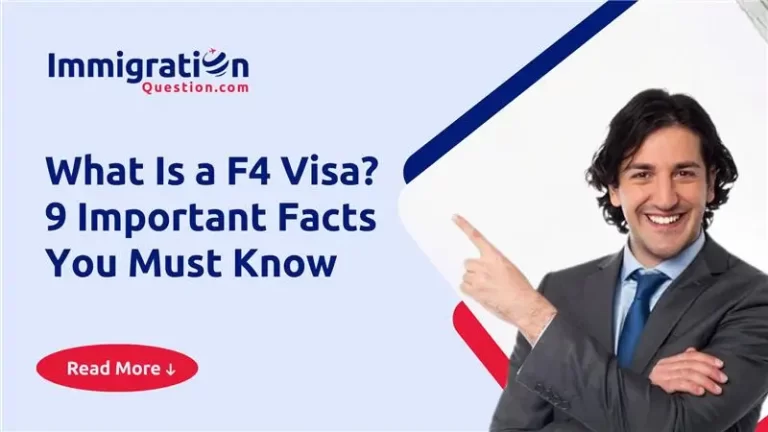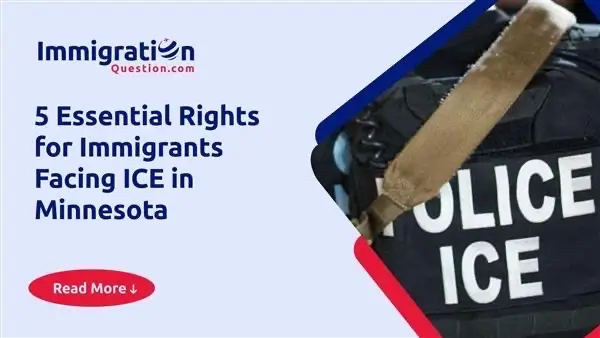Immigration isn’t just a legal process – it’s personal. Maybe you’re staring at a visa application that doesn’t make sense. Maybe your plans just changed, and now you’re scrambling to figure out your next legal step. Or maybe you’re worried because someone you love is in a situation you don’t fully understand – but it feels urgent.
We get it. Immigration problems can feel overwhelming, confusing, and deeply personal all at once. That’s why we’ve created this weekly blog: to bring you clear, practical answers to the most common questions real people are asking online right now.
These aren’t just legal hypotheticals. They’re the same questions real people – students, workers, spouses, and families – are asking online trying to navigate a complicated system with real-life consequences.
Each week, we round up the top five questions and break them down with up-to-date, fact-based answers you can actually use. This week, we’ve added a bonus question, just because it’s too important to ignore.
#1. Can I apply for EB1A while on a J-1 visa and stay in the U.S. even though the J-1 doesn’t allow immigration intent?
Yes, you can – but it’s not as simple as just filing the paperwork. The J-1 visa doesn’t allow “immigrant intent,” which means you’re expected to return to your home country after your program ends. At the same time, the EB1A green card is specifically for immigrants – so yes, the two goals conflict.
That said, it’s completely legal to apply for EB1A while on a J-1 visa. If you’ve already secured a waiver of the two-year home residency requirement, you’re in a much better position than many others.
The key is being careful about how and when you file. You can start with Form I-140 (the EB1A petition), and once that’s approved and your priority date becomes current, you can apply for adjustment of status (Form I-485) from inside the U.S. However, staying in J-1 status while pursuing a green card could cause complications, especially if you need to renew your visa or travel abroad.
One strategy to consider: switch to a visa like H-1B or O-1, which allows dual intent. These give you legal stay and work rights while you continue with your EB1A process – without raising red flags. Also, talk to an immigration attorney to map out the best timeline for you.
Get real answers to your immigration questions – fast and for free. Post your concern and hear back from experienced immigration attorneys within hours. Immigration Question makes it easy to get help you can trust, when you need it most.
#2. If my Canadian parents obtain U.S. citizenship, can I later obtain U.S. citizenship based on their status?
Unfortunately, not automatically. U.S. citizenship doesn’t transfer to adult children just because their parents naturalize. For a child to automatically become a U.S. citizen through a parent, they must meet several criteria under the Child Citizenship Act of 2000:
- They must be under 18,
- At least one parent must be a U.S. citizen,
- The child must be a green card holder,
- And they must live in the U.S. with the U.S. citizen parent.
So if you’re over 18 or never had a green card, you won’t qualify automatically. In your case, if your parents obtained their green cards through a family-based petition (like from a U.S. citizen brother), and you were listed as a dependent child on that petition, there’s a chance you could have been included – depending on your age at the time of filing.
The Child Status Protection Act (CSPA) might help protect your eligibility even if you’ve aged out, but it’s complicated.
If you’re no longer a dependent or didn’t get a green card with your parents, you’ll likely need to pursue your own immigration path. A family-based petition from a parent could still work, but be prepared for long wait times depending on your age and marital status.
#3. What options does my boyfriend have if he’s losing his H-2A job and wants to stay in the U.S.?
Losing an H-2A job can be a tough spot. That visa is tied directly to the employer, so when the job ends, so does the visa status – unless he finds another H-2A job fast. That’s easier said than done since new employers must go through government certification to hire H-2A workers.
If that doesn’t work out, there are a few other options:
- He could apply for a change of status to another visa, like a B-2 visitor visa, to legally remain in the U.S. for a short time while exploring next steps.
- If he has the right background or work experience, he might qualify for an H-2B visa, which covers seasonal non-agricultural jobs like landscaping, construction, or hospitality.
- Enrolling in school is another possibility – but that would mean applying for an F-1 student visa and showing proof of financial support.
The best move is to speak to an immigration attorney right away. Timing is critical here – he only has a short grace period to act before falling out of status.
#4. Can I be denied an F-1 visa even if I have a 100% scholarship?
Yes, and unfortunately, it happens more often than people expect. A full scholarship definitely strengthens your case, but the F-1 visa is about more than just finances.
The visa officer’s main job is to determine if you intend to return home after your studies. That’s called non-immigrant intent, and it’s required for all F-1 applicants. So, if the officer believes you plan to stay in the U.S. permanently – or you can’t show strong ties to your home country – they can deny the visa, scholarship or not.
Other factors that affect the decision:
- Lack of travel history (an empty passport),
- Vague or unrealistic plans for your future,
- Weak ties to your home country (no job offers, property, or family commitments),
- Inconsistent answers during the interview.
The best thing you can do is prepare. Be confident in your answers, explain your future goals, and show how your education fits into your life plan back home. Bring documentation of your scholarship, admission letter, and any supporting materials that demonstrate you’re coming to the U.S. to study – and then return.
#5. Can a student with a pending I-130 green card petition still apply for and use an F-1 student visa?
Yes, but you’d be walking a tightrope. When someone files an I-130 petition on your behalf, it tells the U.S. government that you intend to immigrate at some point. That’s a problem for F-1 applicants because the student visa requires proof that you don’t have immigrant intent – at least not yet.
That said, many students have successfully obtained F-1 visas even with a pending I-130, especially if:
- The petition is in a family preference category with a long wait time,
- You clearly demonstrate your intent to return home after your studies,
- You haven’t filed an I-485 for adjustment of status yet.
Be honest at the visa interview. If the officer asks about the I-130, acknowledge it, but explain that you plan to study in the U.S. now and will deal with the green card process in the future. Consistency and credibility are key.
Just be cautious. If the F-1 visa is approved, don’t rush into filing your green card paperwork without legal advice – it could backfire and jeopardize your status.
Now to the bonus question.
#6. What should someone in removal proceedings do if they’re worried about being arrested at immigration court?
This fear is real – and valid. While it’s rare, there have been instances where ICE agents arrested individuals at courthouses, especially in cases involving prior deportation orders or criminal records.
Here’s what you (or your friend) can do:
- Get a lawyer immediately. Having legal representation shows you’re taking your case seriously, and in some cases, your lawyer can attend on your behalf.
- Bring proof of all pending applications, especially if there’s a marriage-based green card case in process or a pending asylum application.
- Avoid unnecessary attention. Show up early, dress professionally, and be respectful in court.
- Prepare a safety plan. Make sure family members know your court date and keep emergency contacts informed just in case something unexpected happens.
- Know your rights. You do not have to answer questions from ICE without your lawyer present. If ICE tries to arrest someone, they must show a warrant signed by a judge—not just an administrative one.
If you’ve got immigration questions, don’t leave them to chance. At Immigration Question, you can ask licensed immigration attorneys real questions – for free. Get clear, honest answers fast, and if you need legal help, we’ll connect you with someone who’s right for your case. Your path forward starts with a single question.

![Top 5 Immigration Questions People Asked Online This Week [May 23, 2025]](https://blog.immigrationquestion.com/wp-content/uploads/2025/05/top-5-immigration-questions-people-asked-online-this-week-may-23-2025.webp)









